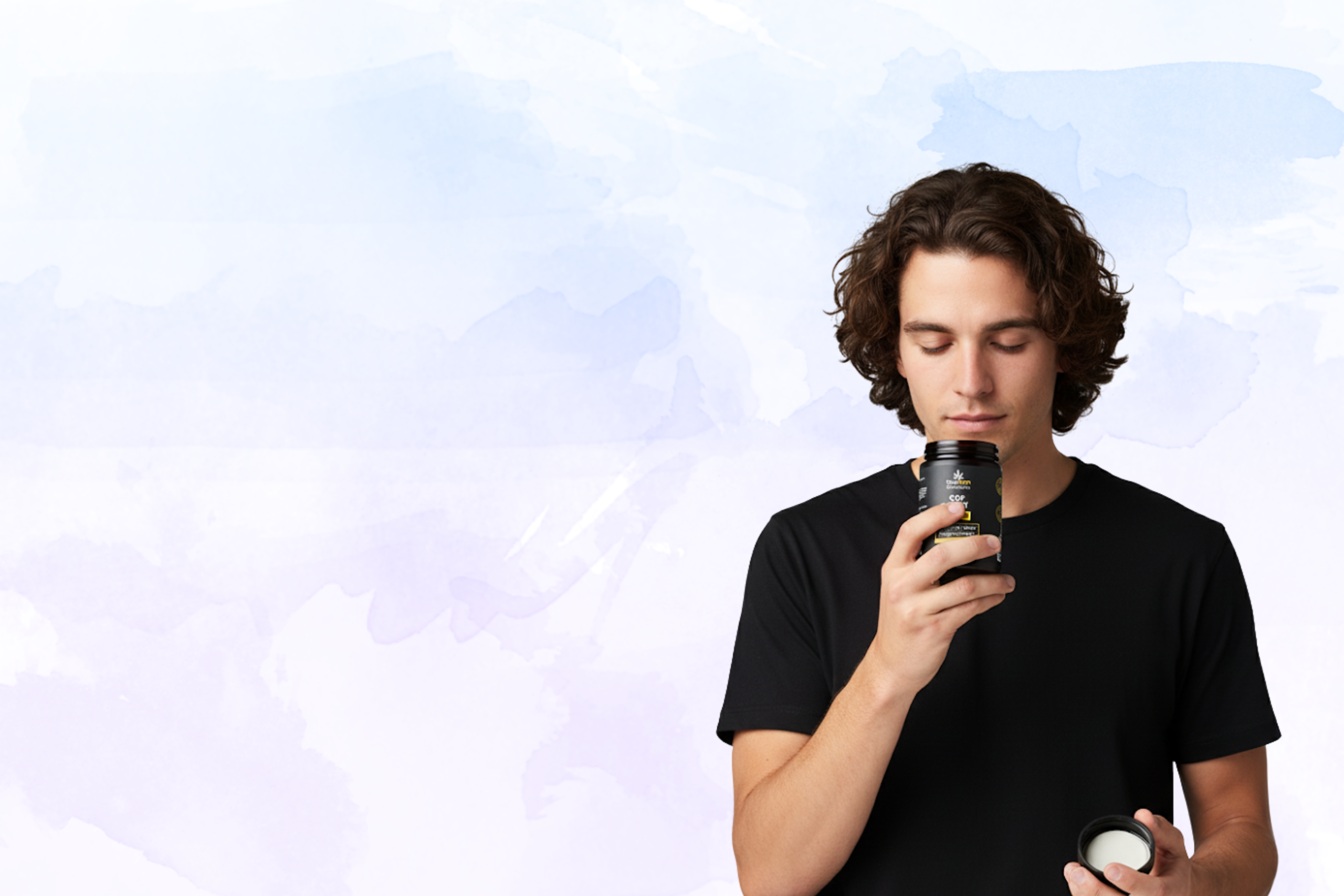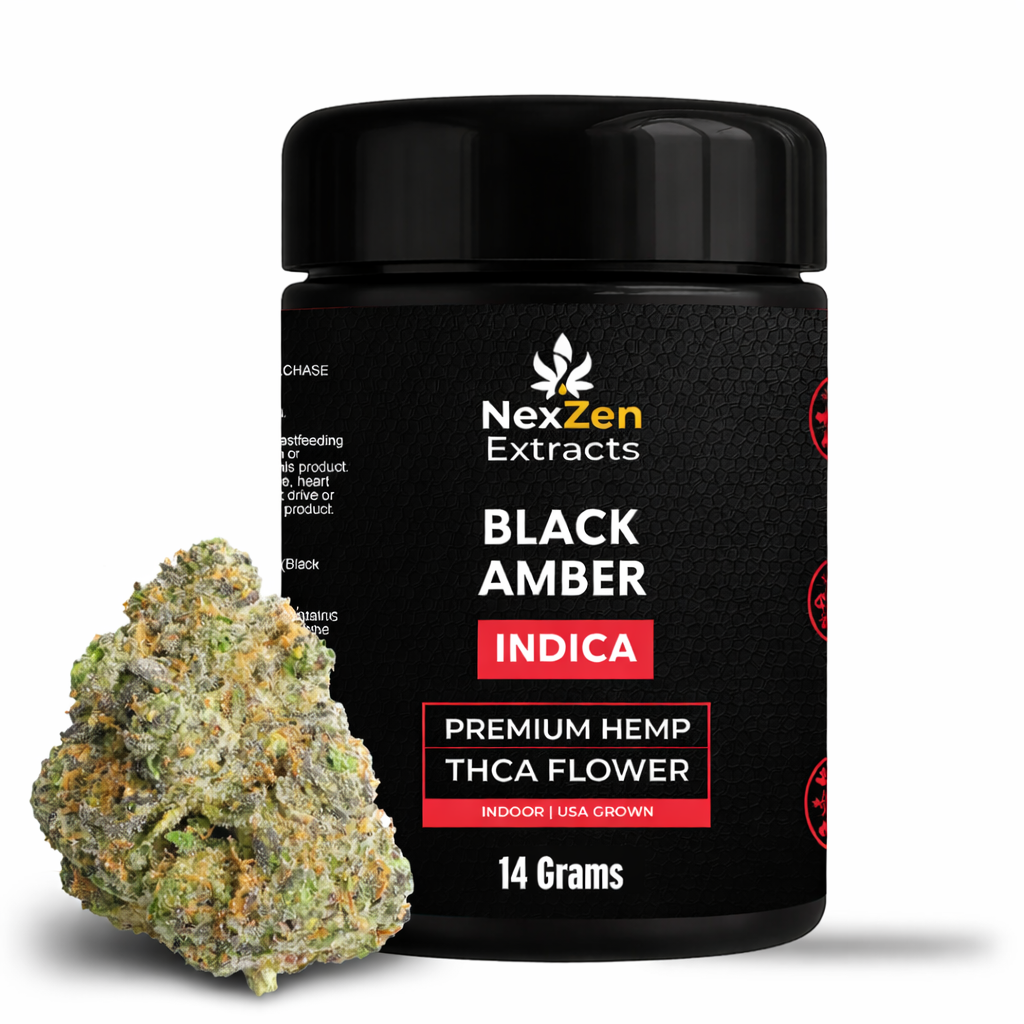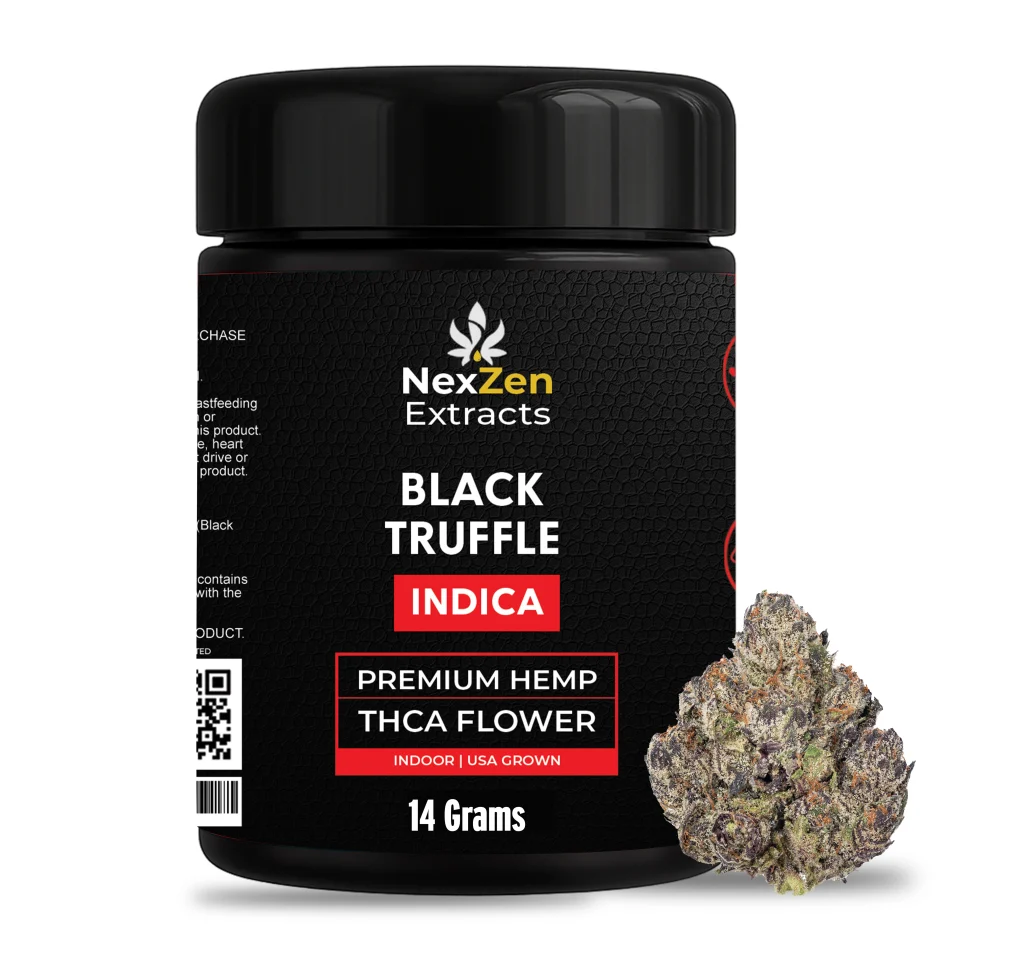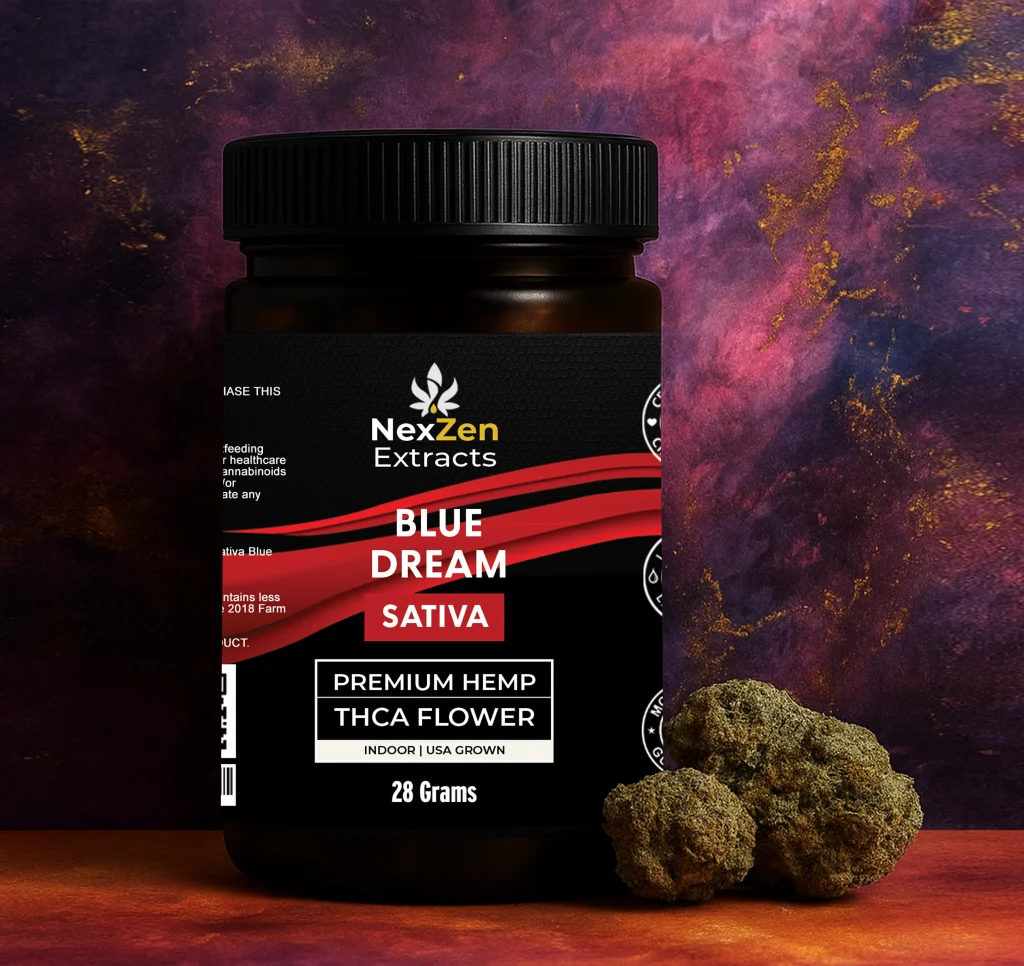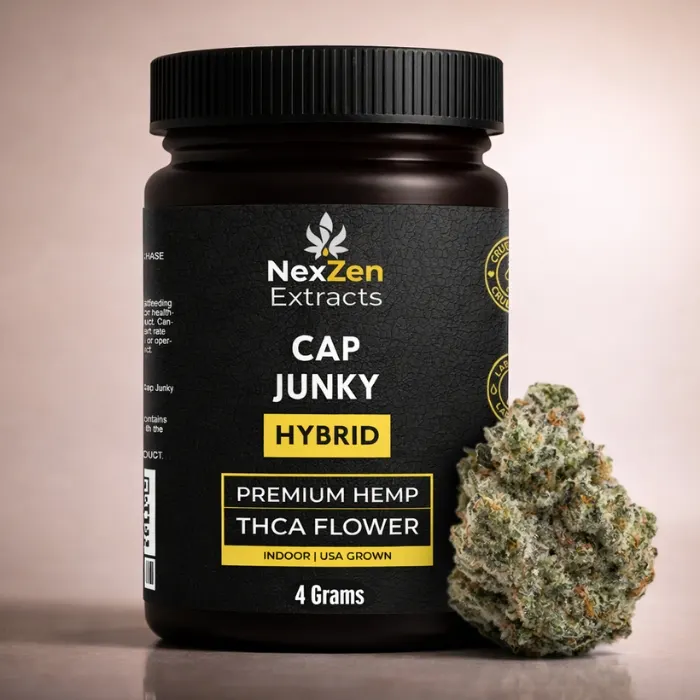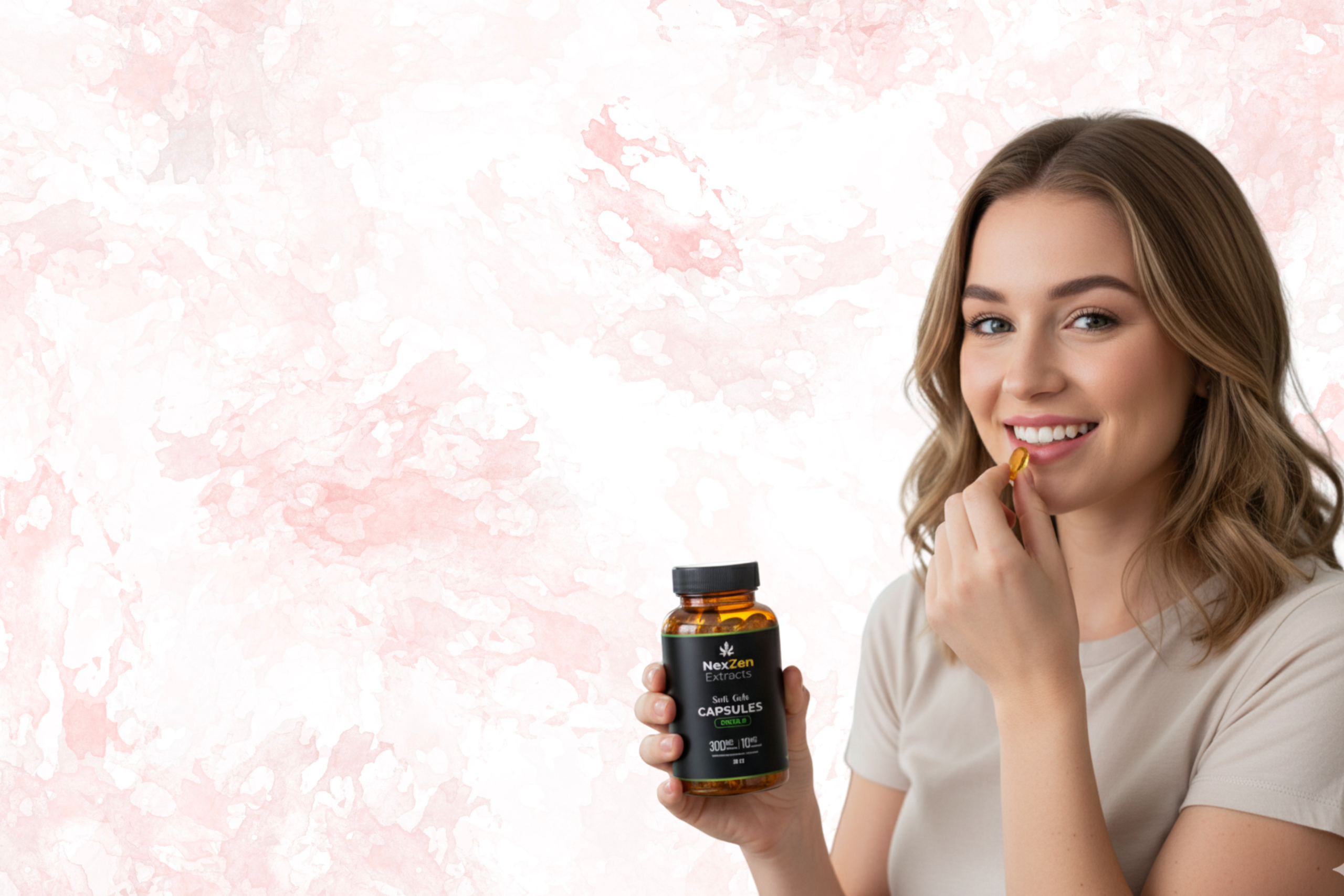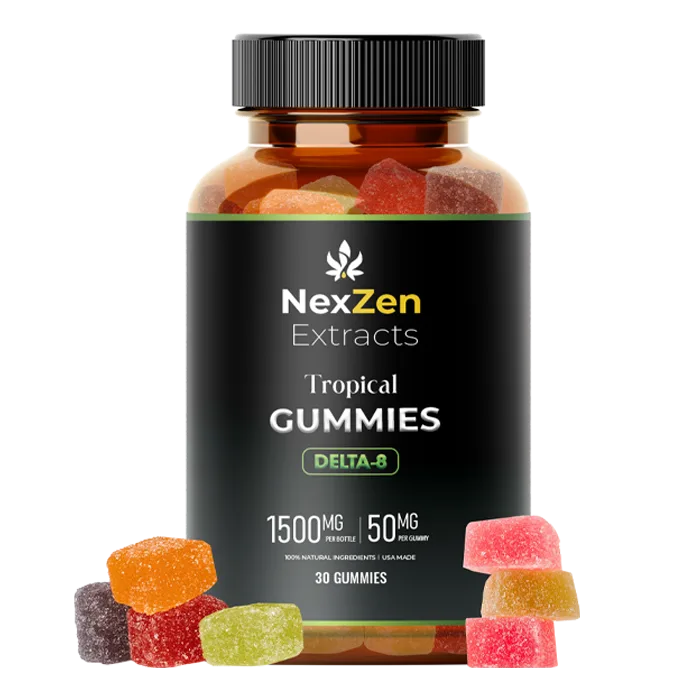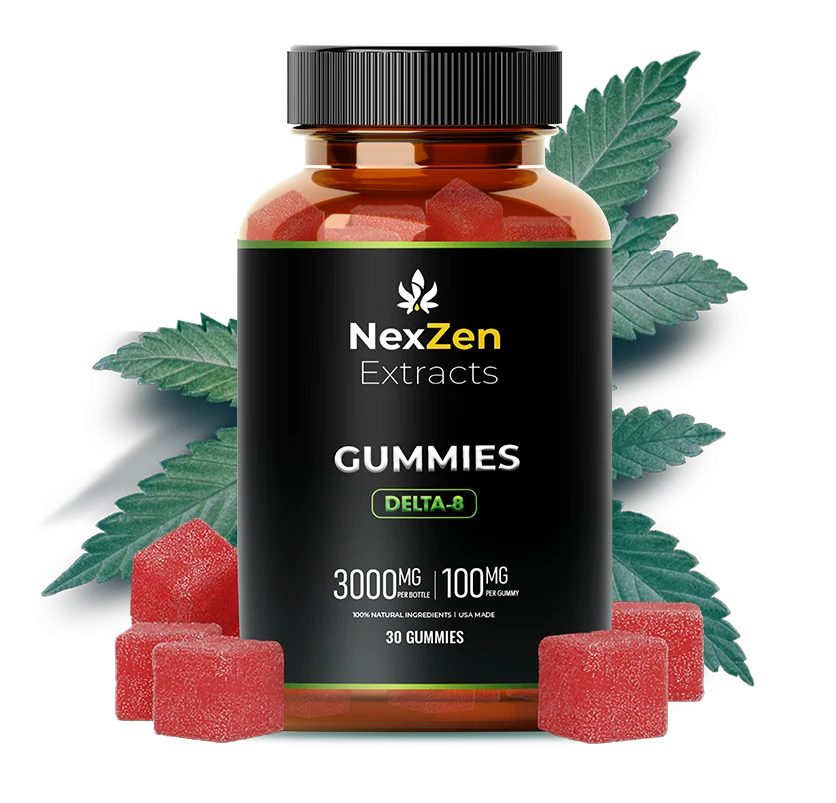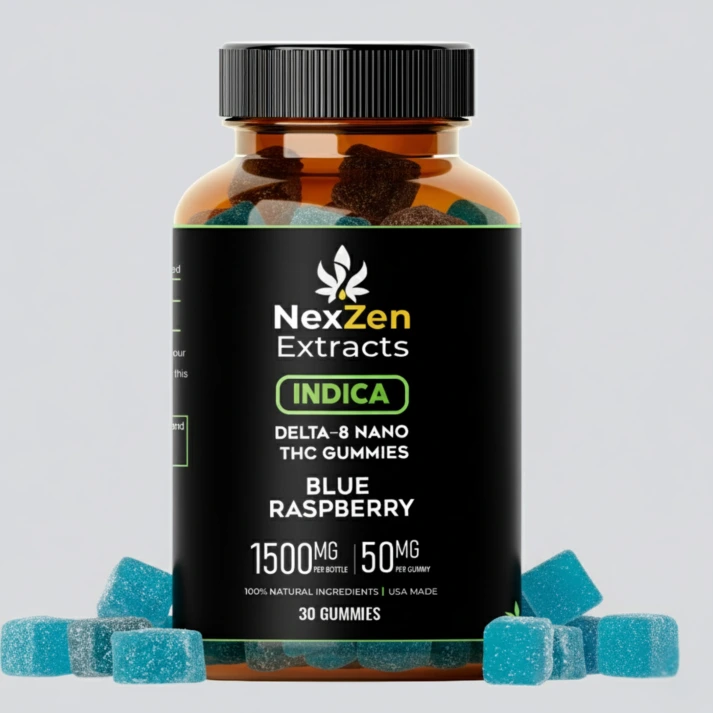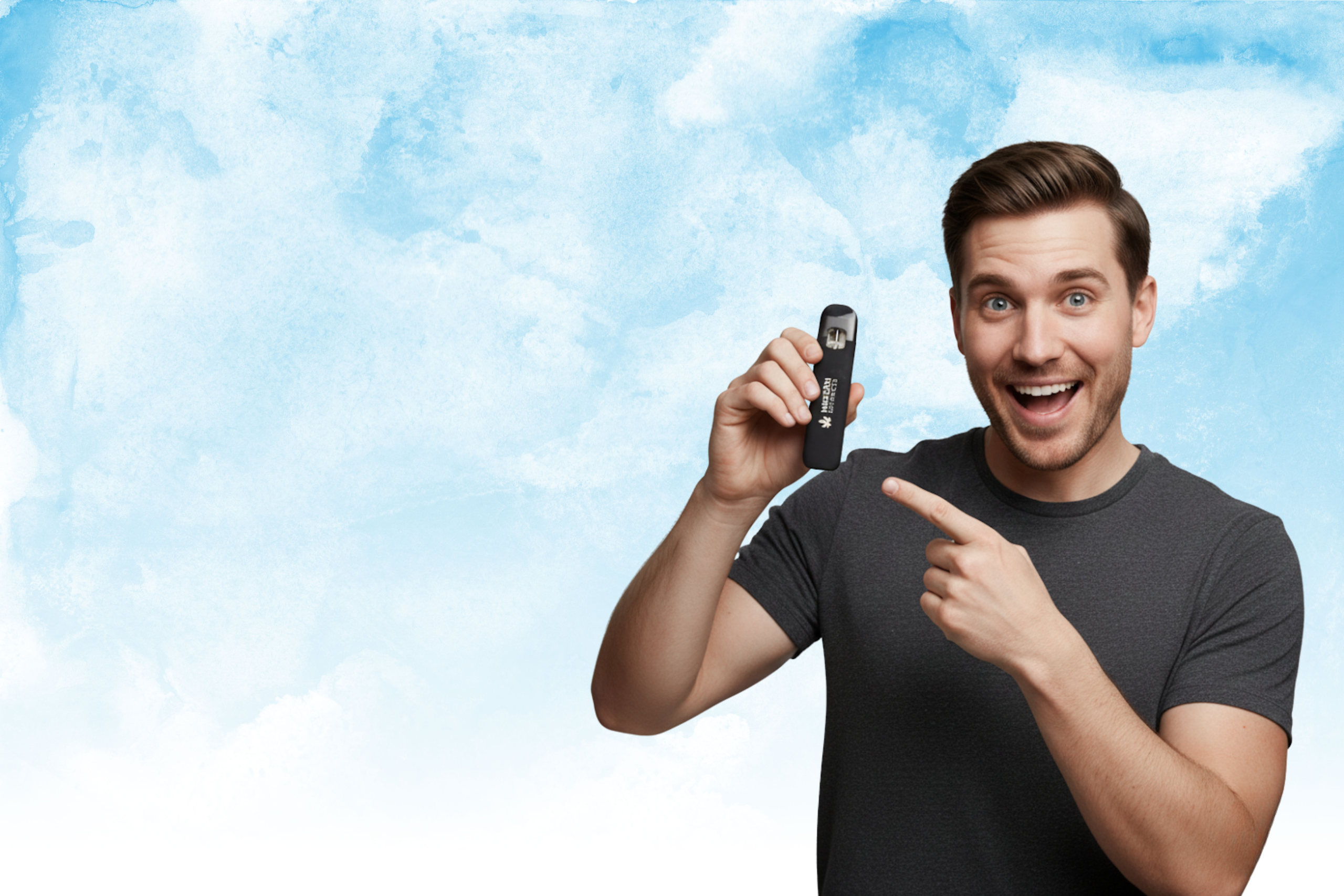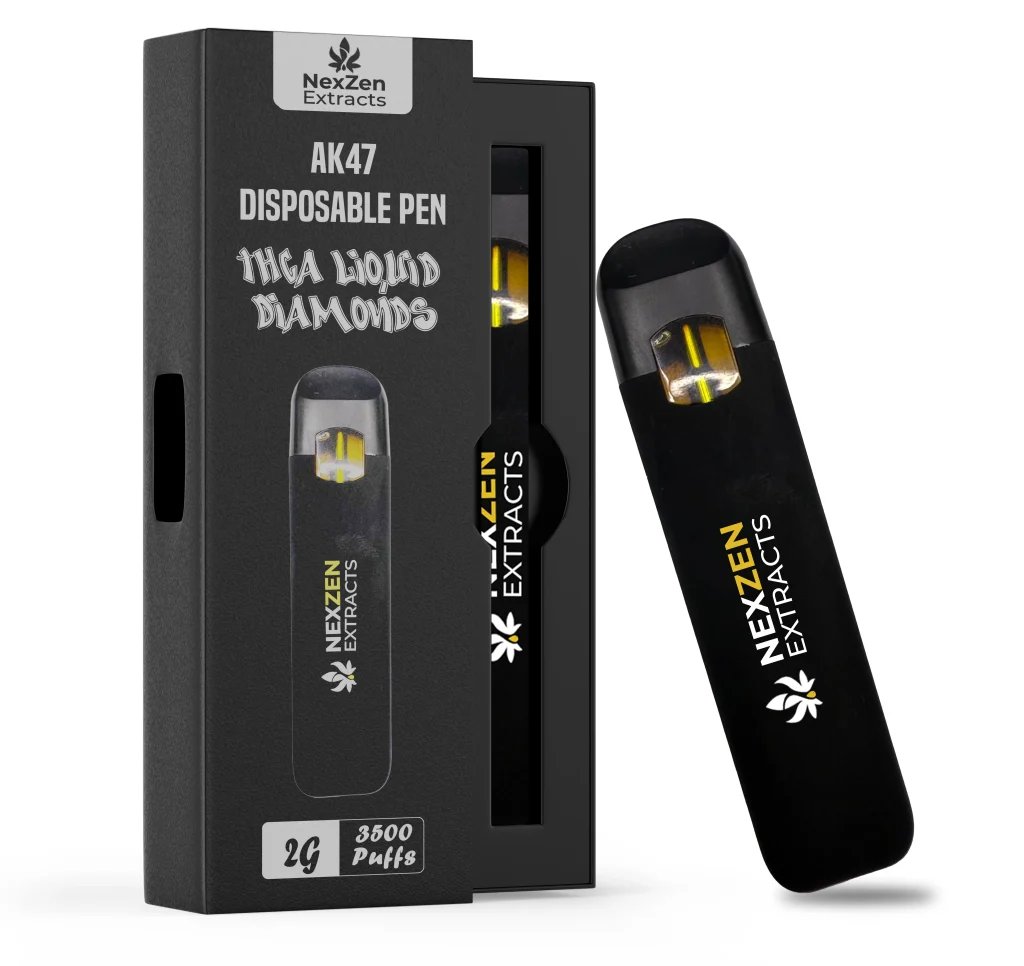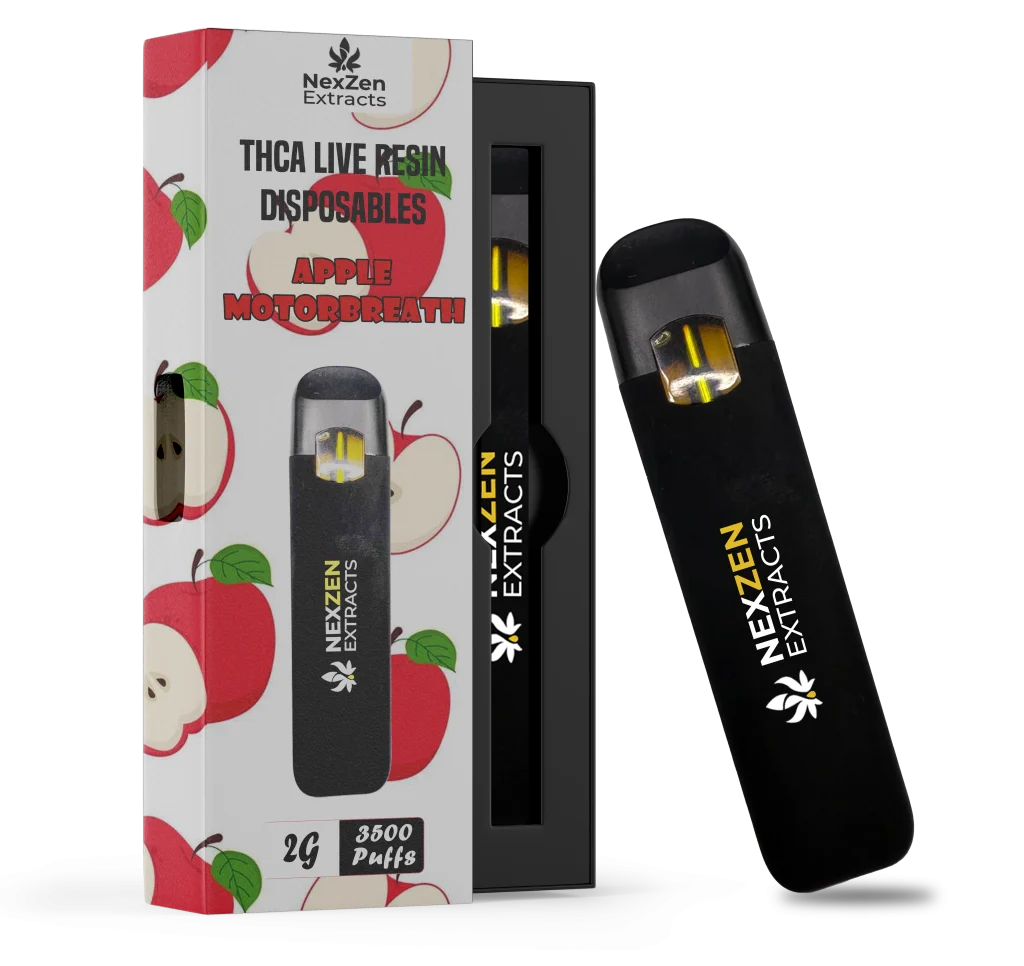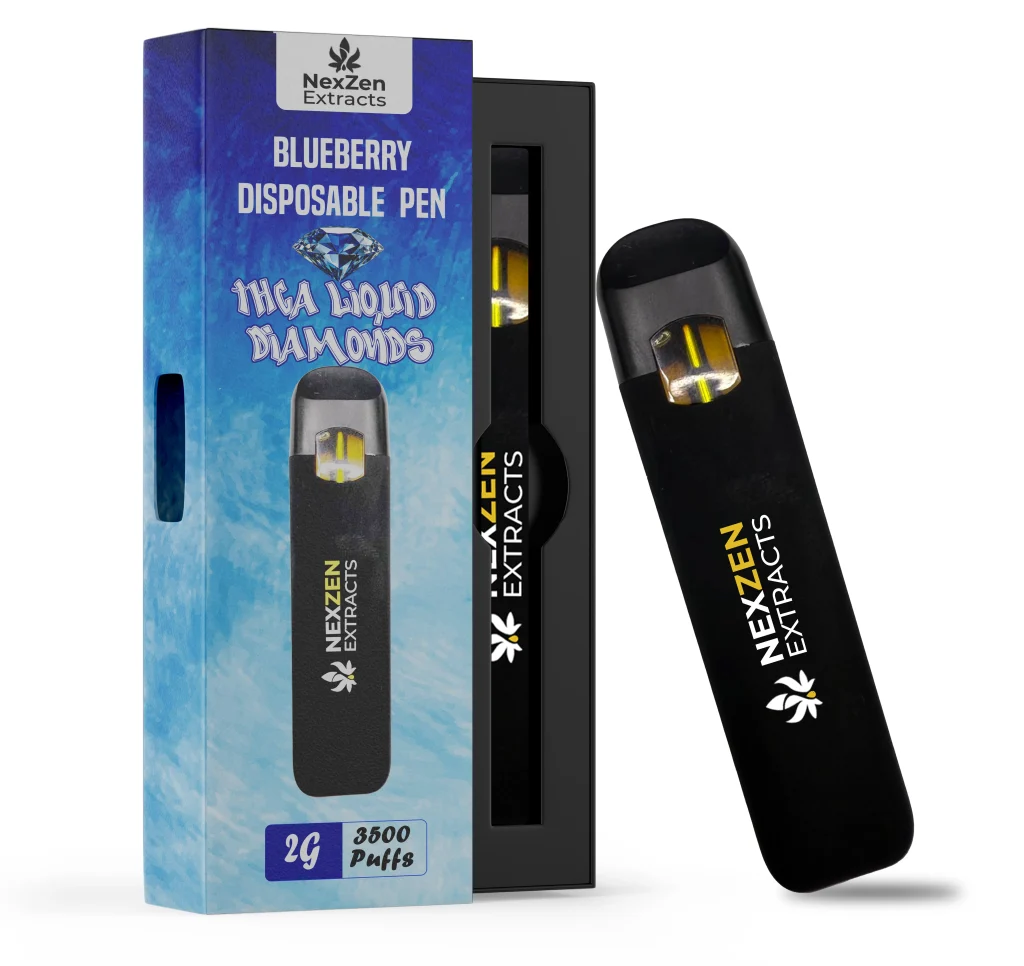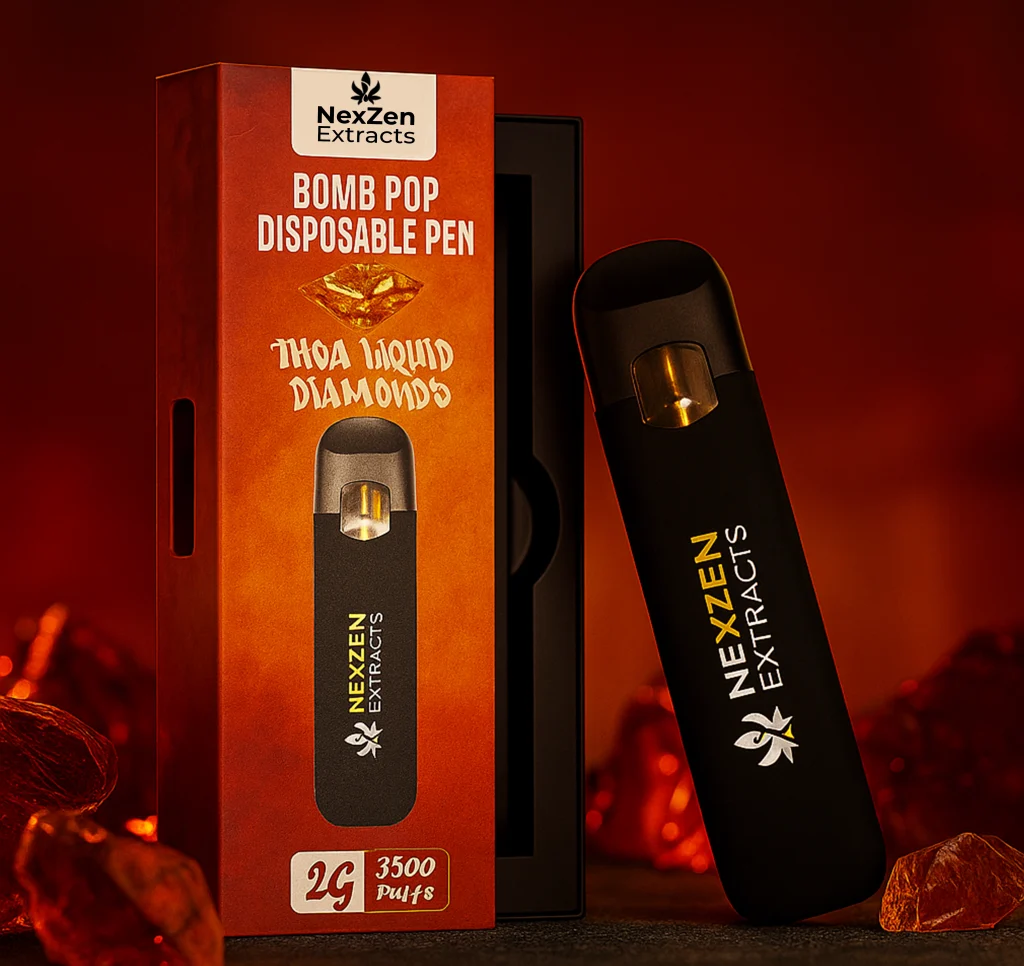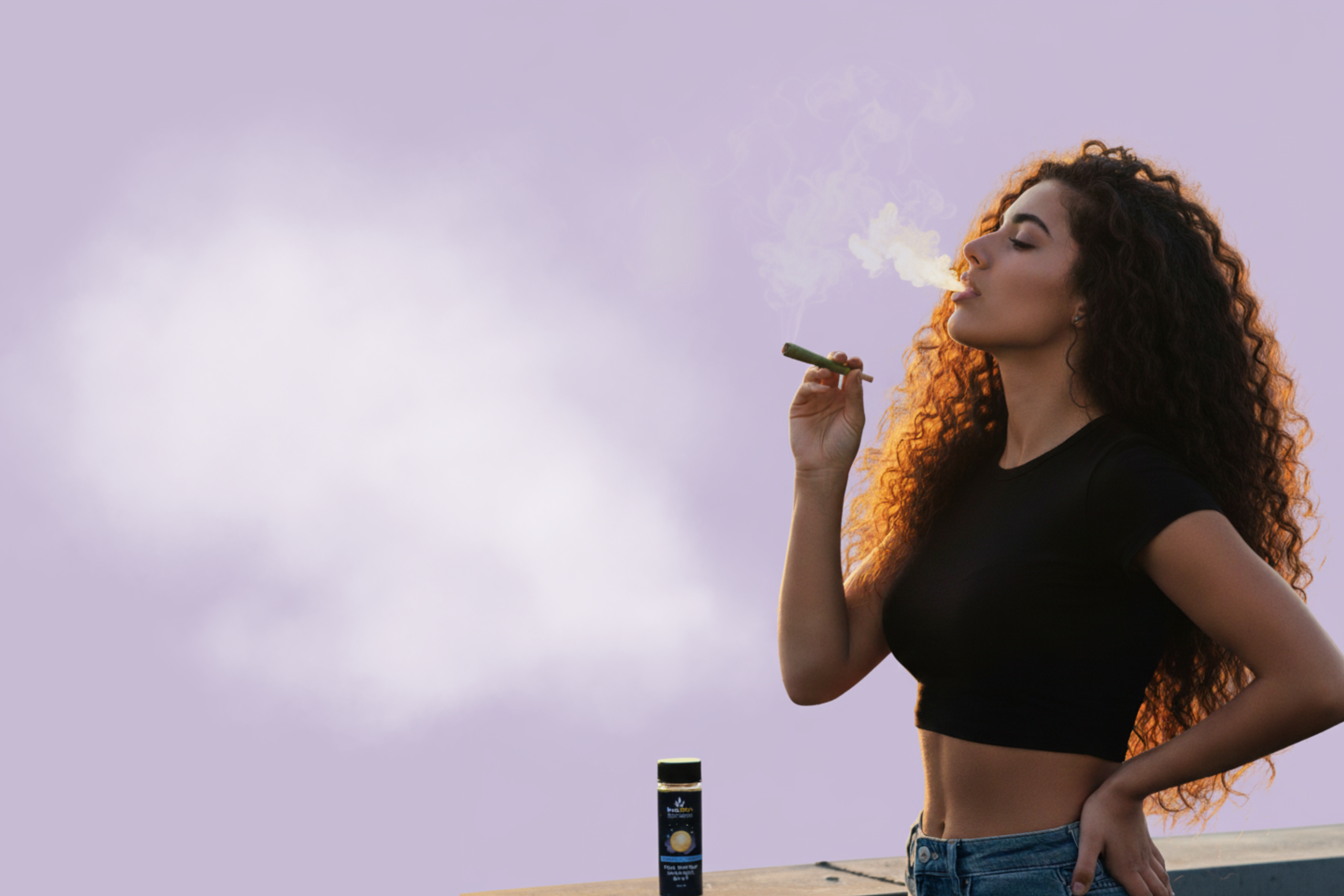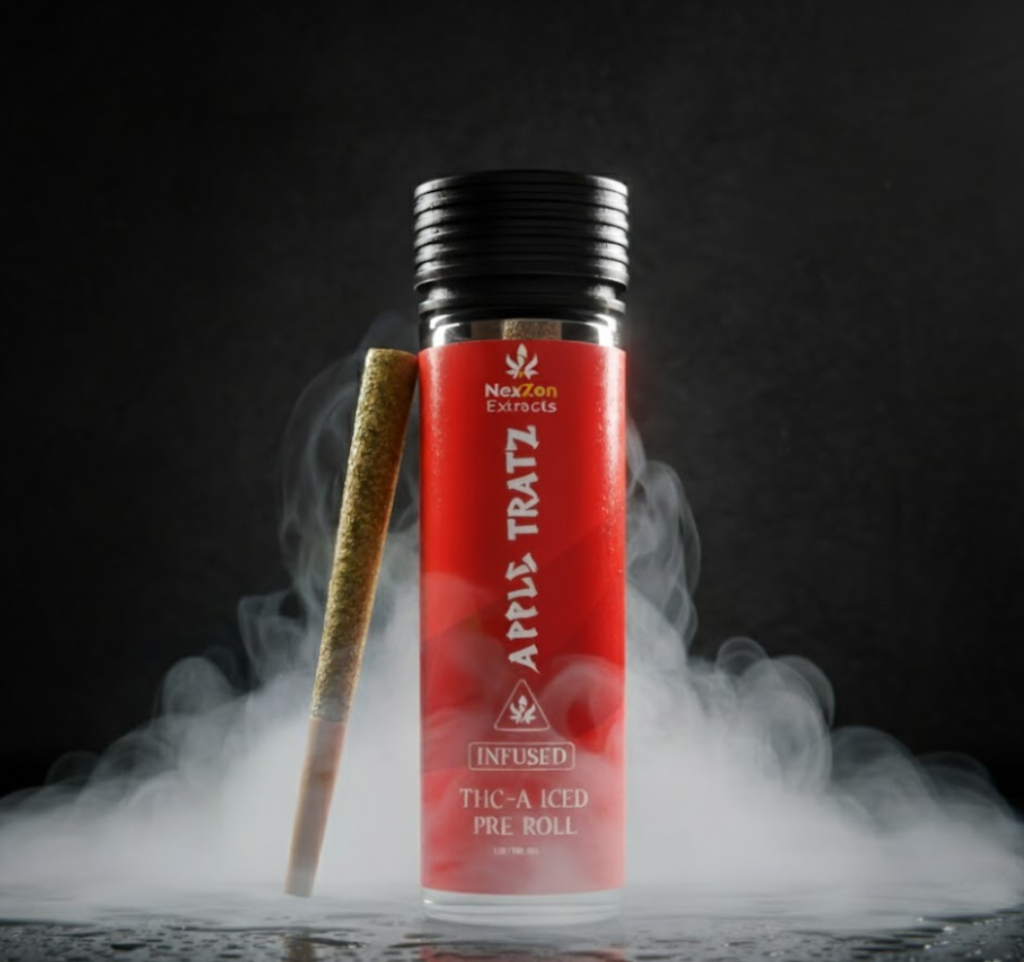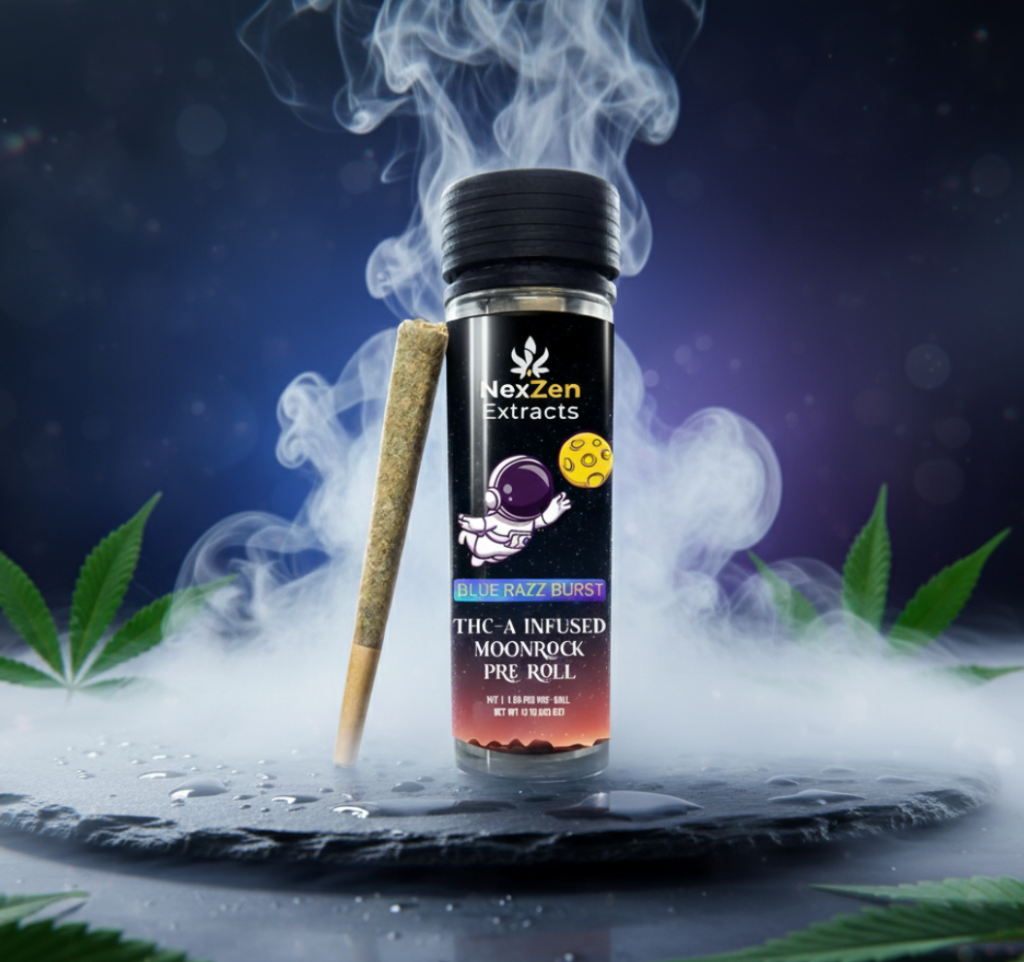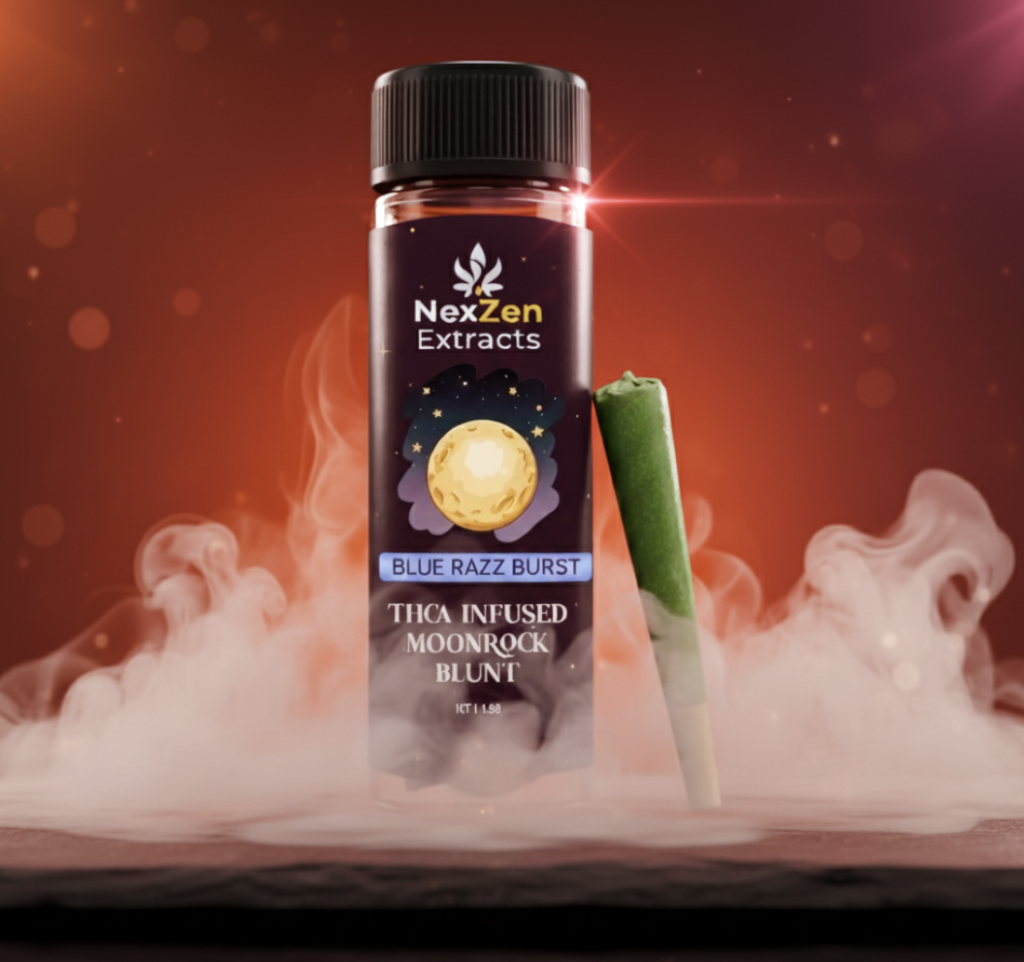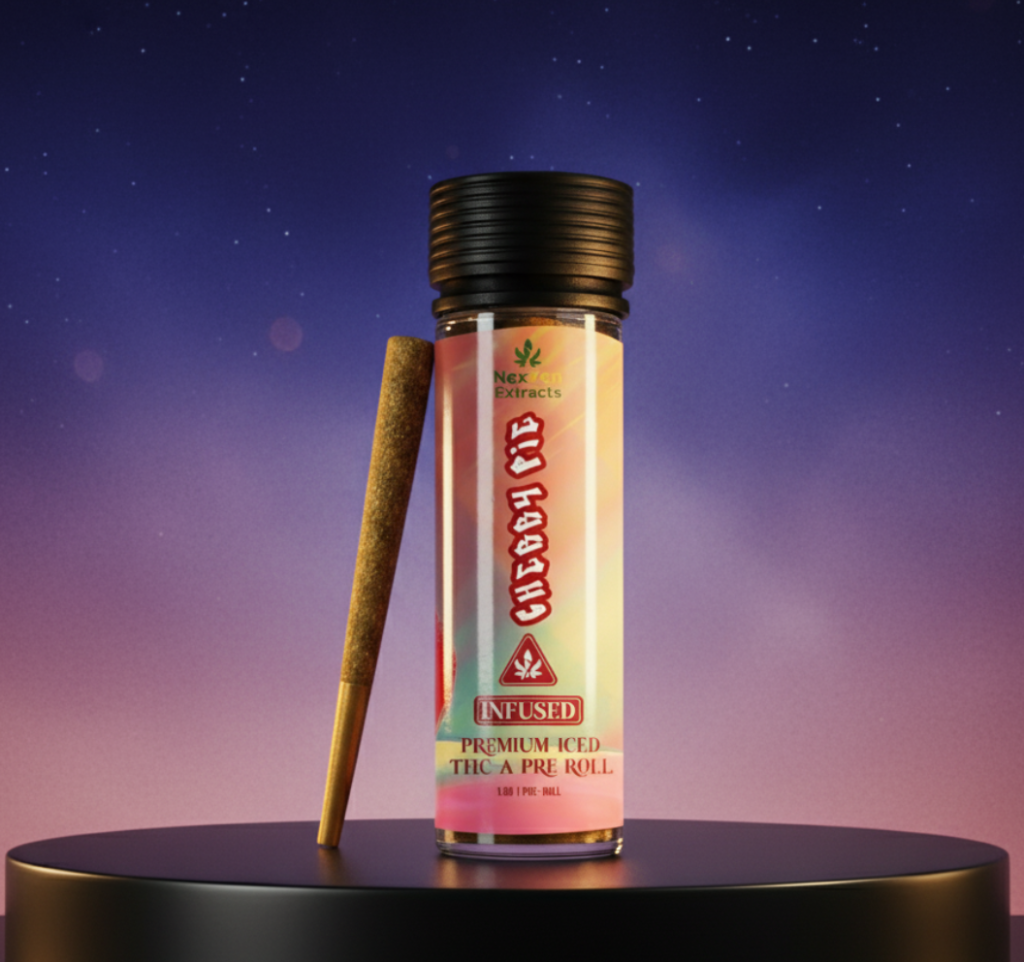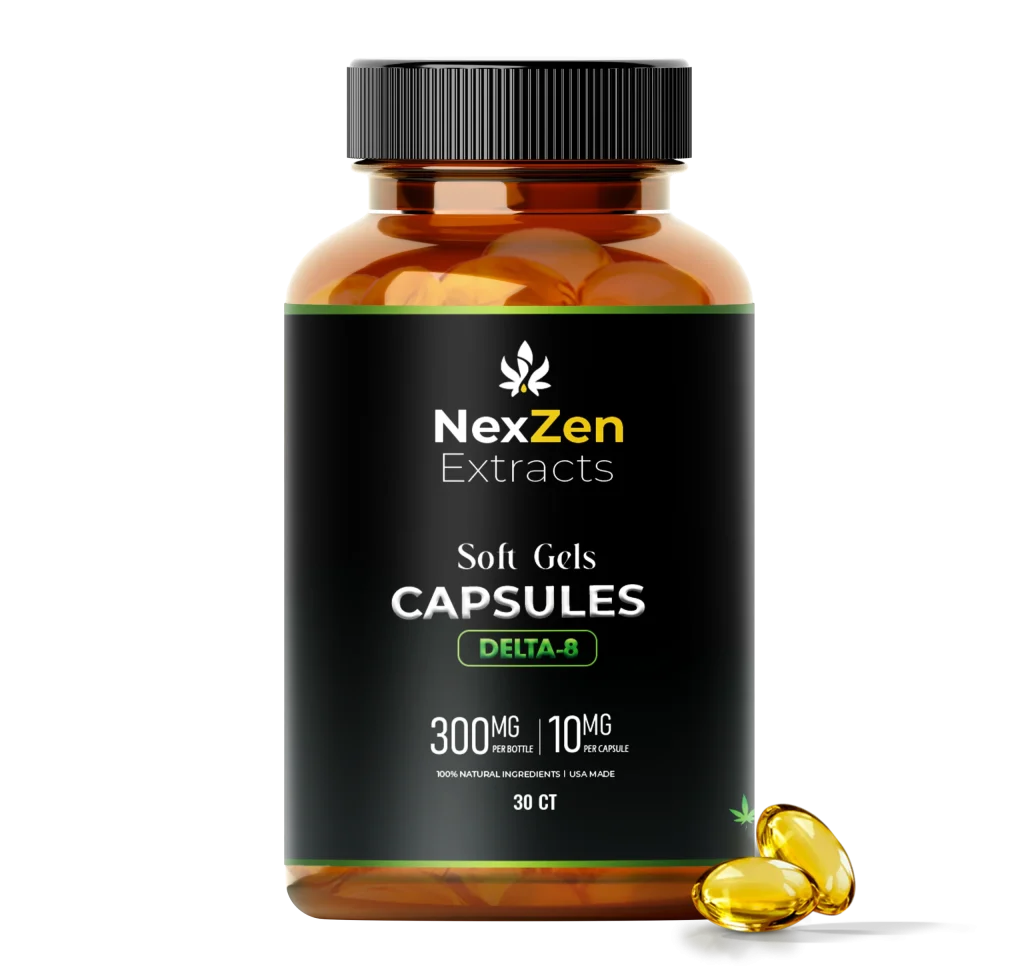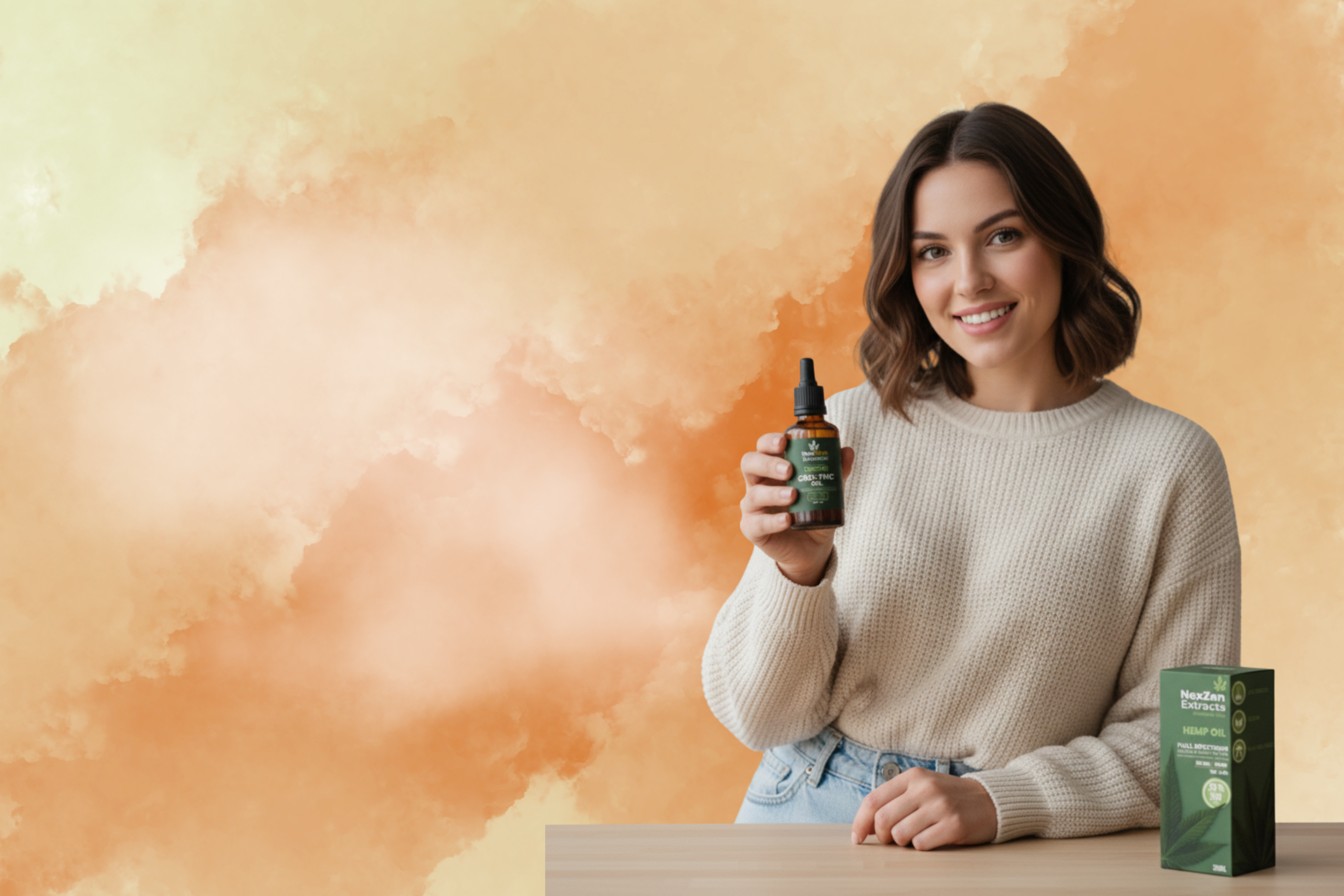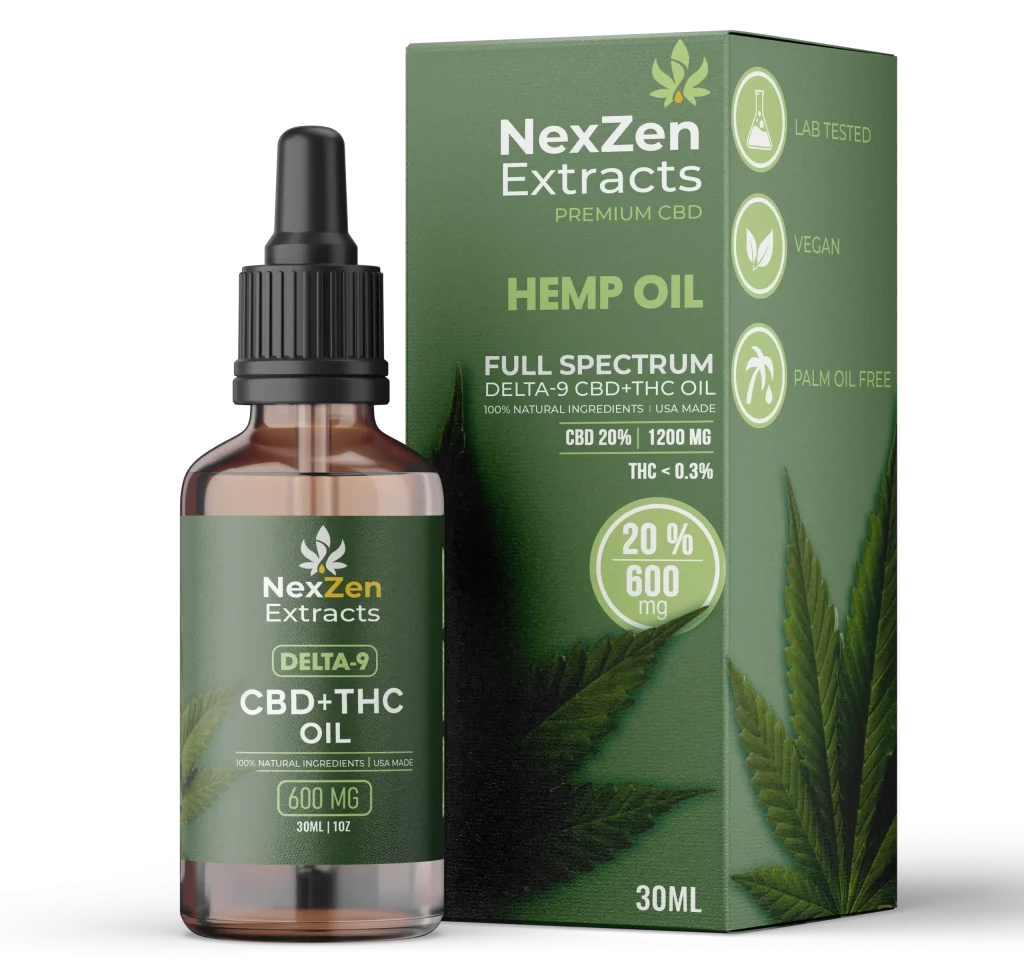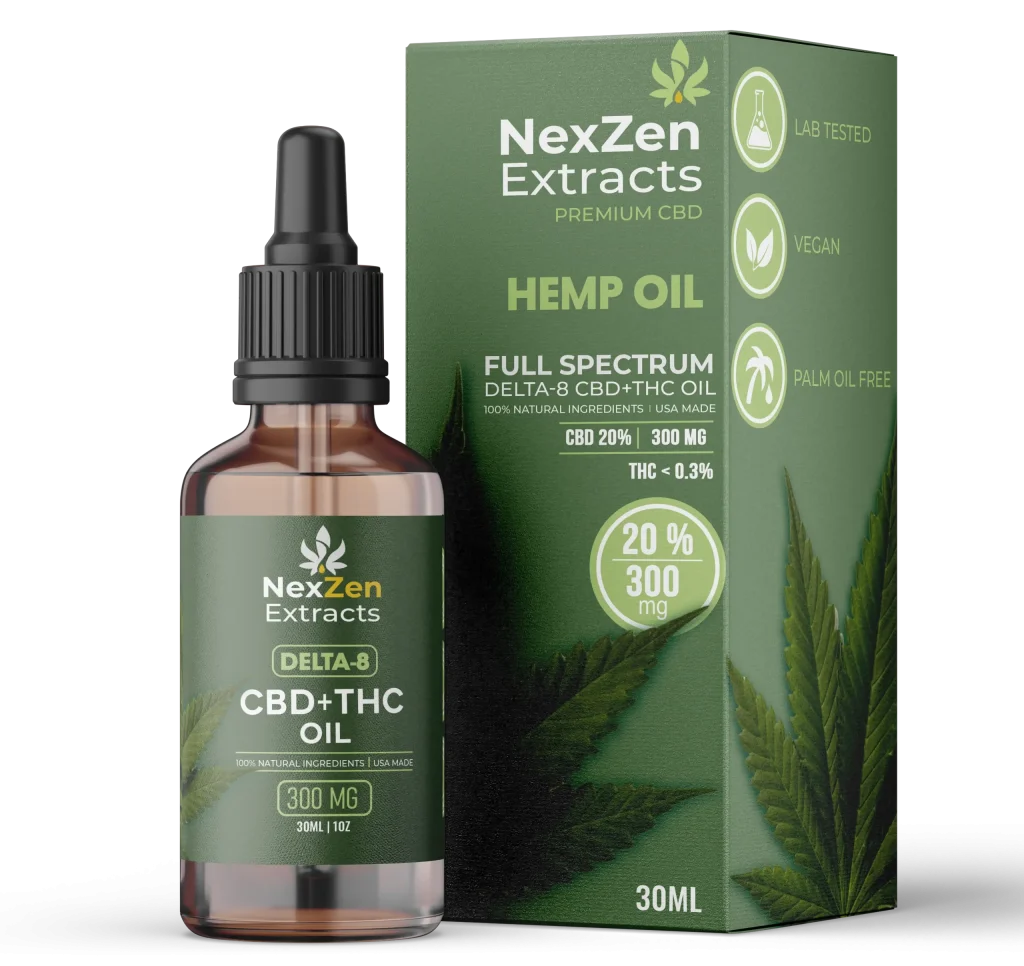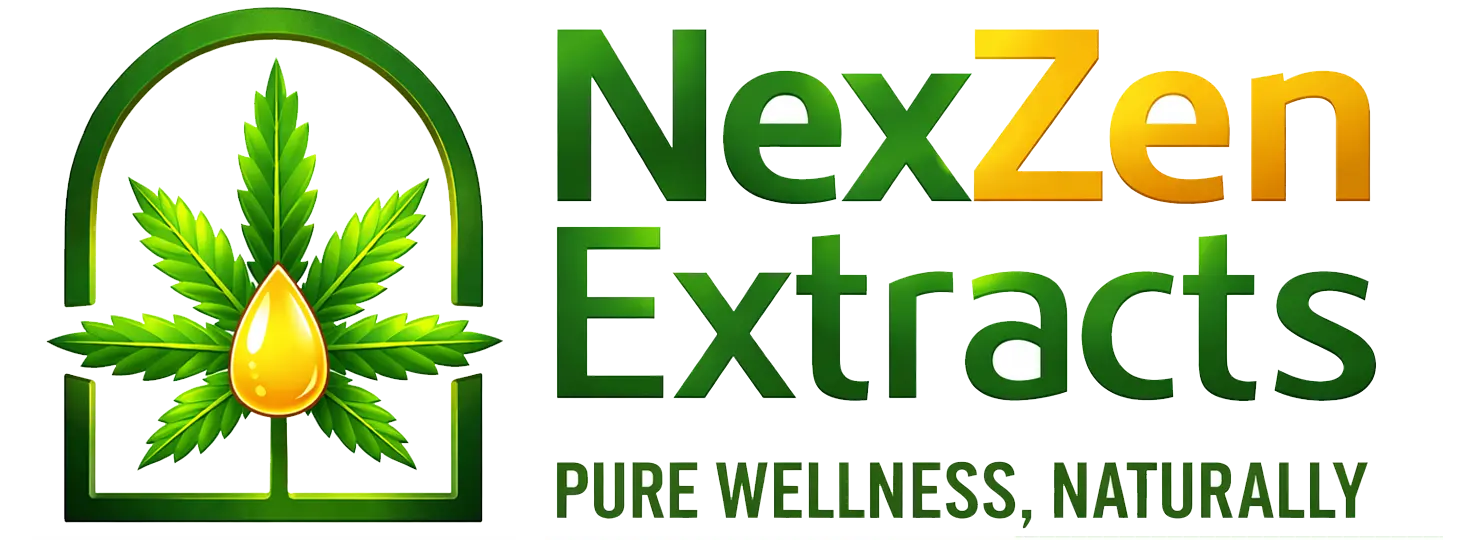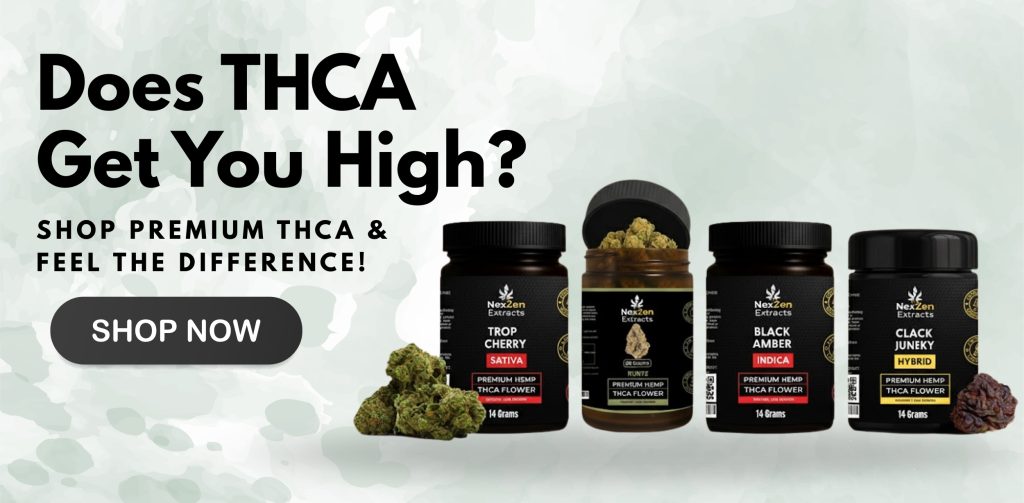FREE SHIPPING 🚚 ORDERS OVER $99
Does THCA Get You High? Exploring the Science, Effects & What It Means
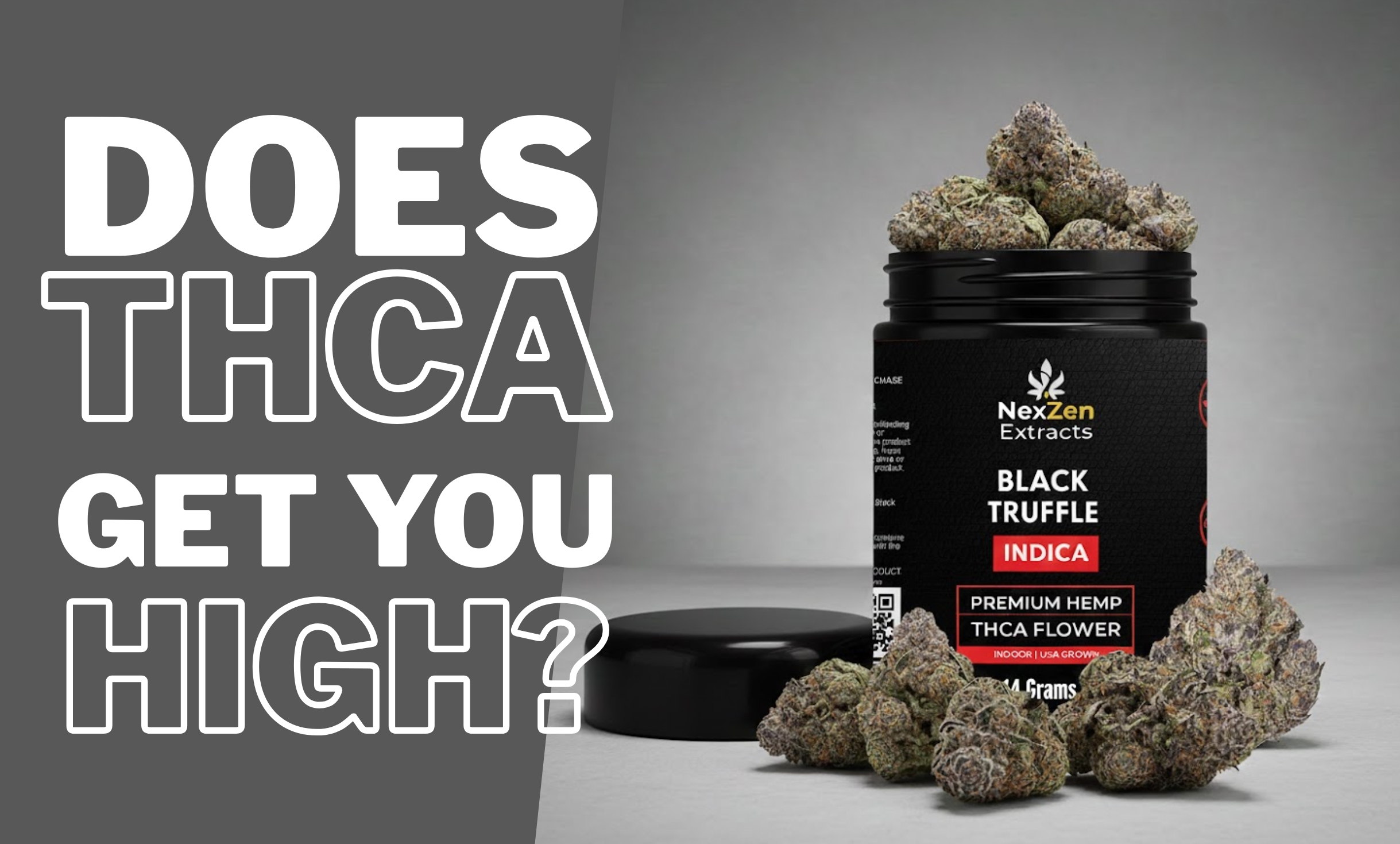
When it comes to cannabinoids, one compound that’s been gathering a lot of attention lately is Tetrahydrocannabinolic Acid (THCA). You may have seen THCA flower, THCA concentrates, or heard someone mention that THCA is “non-psychoactive” but can “convert to THC.”
In this article, we’ll explore what THCA actually is, how it behaves in the body, whether it can get you high, and what you should keep in mind—including a look at NexZen Extracts, a brand known for its premium THCA products.
What is THCA?
THCA is the acidic precursor to Delta-9-Tetrahydrocannabinol (THC). In raw cannabis or hemp plants, THCA exists in place of THC. In its raw state, THCA contains a carboxyl group (a “COOH” group) that prevents it from binding efficiently to CB1 receptors in the brain—the receptors responsible for producing the “high” feeling associated with THC.
When THCA is exposed to heat (through smoking, vaping, or baking), it undergoes a chemical process called decarboxylation, where it loses the carboxyl group and transforms into THC. Once that happens, it gains the ability to bind to the CB1 receptors and produce psychoactive effects.
So, in short: THCA in its raw form doesn’t get you high, but once it’s heated and converted into THC, it definitely can.
Does THCA Get You High? The Short Answer
In its raw, unheated form, THCA does not typically get you high because it does not efficiently bind to the brain’s CB1 receptors. However, once it’s heated or converted into THC through decarboxylation, it can produce the euphoric or “high” effects associated with THC.
Whether or not you feel high depends on several factors:
-
How much THC was formed during heating
-
Your method of consumption
-
Your body chemistry and tolerance level
It’s also important to know that many “THCA” products may already contain some THC or easily convert into it, so you shouldn’t assume that “THCA” automatically means “non-psychoactive.”
How It Works: Science of Conversion & Effects
Here’s a simple breakdown of how THCA interacts with the body and environment:
-
Decarboxylation: When exposed to heat, THCA loses its extra carboxyl group, turning into THC. This process activates its psychoactive potential.
-
Receptor Binding: THC binds to CB1 receptors in the brain and nervous system, producing euphoria, relaxation, and altered perception. THCA, in its original form, binds weakly to CB1, resulting in little to no high.
-
Consumption Method: If you smoke, vape, or dab THCA flower or concentrate, you’re heating it and thus converting it to THC—resulting in psychoactive effects. On the other hand, eating THCA raw (like in smoothies or tinctures that aren’t heated) won’t typically make you high.
-
Aging and Storage: THCA can slowly convert to THC over time, especially if it’s exposed to heat or light. That means even unheated products might increase in potency as they age.
What the Studies & Experts Say
While research on THCA is still developing, experts agree that THCA itself isn’t psychoactive until converted to THC. The process of decarboxylation is key to unlocking the euphoric effects.
Some experts also point out that because THCA can easily convert to THC, many regulatory agencies consider both compounds together as “total THC.” This is why certain THCA products might fall under the same restrictions as THC products.
So, even if your THCA flower looks legal on paper, heating it could turn it into something that’s technically a controlled substance in your area. Always double-check local laws before purchasing or using THCA products.
Why People Choose THCA Products
If THCA itself doesn’t get you high, why are people buying it? There are several reasons:
-
Non-psychoactive potential: Some people use raw THCA for its possible wellness benefits without the high.
-
Versatility: THCA flower and concentrates can be used either raw or heated, giving users control over whether they want psychoactive effects.
-
Full cannabinoid profile: Many consumers appreciate products that preserve the plant’s natural compounds, including THCA, before activation.
-
Legal flexibility: In certain regions, THCA falls under a different legal classification than THC—though this is changing quickly.
Still, these benefits come with risks. Because THCA can convert to THC, its legality and psychoactivity depend heavily on how it’s used.
Legal & Regulatory Considerations
The legality of THCA is one of the most complex aspects of this cannabinoid. In the United States, for instance, the 2018 Farm Bill legalized hemp-derived products containing less than 0.3% Delta-9 THC by dry weight. THCA wasn’t explicitly addressed.
However, some states now use a “total THC” rule, which factors in how much THC could be produced if the THCA were converted. That means many THCA flower products exceed legal thresholds once heated and may be treated as marijuana rather than hemp.
Because of this, a THCA product that’s perfectly legal in one state might be considered illegal in another. If you plan to travel or sell THCA, it’s essential to understand how your jurisdiction defines “total THC.”
NexZen Extracts: A Leader in Quality and Transparency
When exploring THCA products, brand reputation and transparency are everything. NexZen Extracts has positioned itself as a trusted name in the cannabinoid industry by focusing on purity, testing, and consumer education.
The company offers a wide range of THCA-rich extracts and concentrates known for their potency and clarity. Their extraction methods aim to preserve the natural cannabinoid structure—keeping THCA intact while also offering “activated” options for those seeking stronger effects.
What sets NexZen Extracts apart is its commitment to third-party lab testing and Certificate of Analysis (COA) transparency. Each batch is verified for cannabinoid content, purity, and safety, helping users understand exactly what they’re consuming.
In an industry still finding its regulatory footing, NexZen Extracts serves as an example of best practices—balancing innovation with responsibility and compliance.
Practical Advice: What You Should Know
Before trying a THCA product, keep these tips in mind:
-
Check the COA (Certificate of Analysis): Always verify both THCA and THC levels. Make sure the report is from a third-party lab.
-
Know your method: Smoking, vaping, or dabbing converts THCA to THC and can make you high. Eating it raw generally won’t.
-
Store carefully: Keep THCA products away from heat and light to prevent unwanted conversion to THC.
-
Start low, go slow: If you’re unsure about potency, start with a small dose and wait to gauge effects.
-
Know your local laws: Regulations vary by region, so check whether THCA is treated separately or combined with THC limits.
-
Research the brand: Choose reputable companies like NexZen Extracts that publish full lab results and comply with testing standards.
-
Set expectations: Raw THCA products likely won’t cause a high, but any exposure to heat could change that instantly.
Summary & Final Thoughts
So, does THCA get you high?
The answer: It depends. In its raw, unheated form, THCA will not get you high. However, once it’s exposed to heat and transformed into THC, it can absolutely produce psychoactive effects.
The science of decarboxylation explains this conversion, while the growing complexity of laws surrounding THCA reflects the fine line between hemp and marijuana products.
If you’re curious about exploring THCA, do so responsibly—research your local regulations, review lab reports, and understand how your consumption method influences the experience.
Brands like NexZen Extracts exemplify what it means to bring transparency and quality to a rapidly evolving market. Whether you’re looking for the raw cannabinoid experience or a potent activated extract, understanding THCA helps you make informed, safe choices.
In conclusion, THCA itself may not get you high—but once heat enters the equation, it can unlock all the familiar effects of THC. Treat it with knowledge, respect, and responsibility.
Disclaimer: This article is for educational purposes only and does not constitute medical or legal advice. Always consult with a healthcare professional and check your local laws before using any cannabinoid product.
